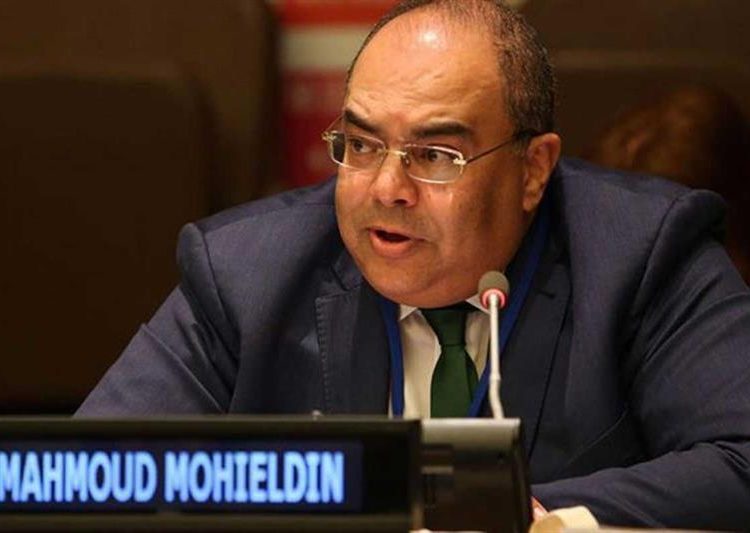Mahmoud Mohieldin, UN Climate Change High Level Champion for Egypt and UN Special Envoy on Financing 2030 Sustainable Development Agenda, confirmed that climate finance initiatives must be rooted to the Sustainable Development Goals (SDGs) and consistent with the priorities of UN Member States, explaining that partnerships are the key to achieving this consistence.
During his participation in the Sustainable Finance Forum, organized by the UNEP Finance Initiative in New York, Mohieldin said that although the whole of Africa does not contribute more than 3% of carbon emissions, it is one of the regions most affected by climate change, at the same time, financing barriers and debt burdens in many African countries limit their ability to finance sustainability and climate action, explaining that Africa needs to mobilize $2.7 trillion until 2030 to bridge the climate finance gap and implement NDCs, as well as its need to mobilize $1.3 trillion annually until 2030 to finance its SDGs.
He stressed that financing climate and development action in Africa entails addressing the debt crisis through the Sustainable Debt Coalition, supporting the African Carbon Markets Initiative (ACMI), promoting investment in nature and supporting the African bioeconomy, and activating credit guarantee and credit enhancement mechanisms to help de-risking financing and investing in climate and development projects.
Mohieldin noted the white paper launched by HLCs this week, which proposes specific measures to finance climate action in developing countries, including the adoption of new concessional finance policies that include low interest rates and long-term repayment and grace periods, reducing financing and investment risks by activating credit guarantee and credit enhancement mechanisms, improving the legislative and regulatory environment for business to allow the flow of funds and encourage the private sector to participate more in climate action, contributing to reducing the debt of developing countries through debt swaps and special drawing rights, activating foreign exchange guarantee mechanisms, and supporting local institutions and projects in developing countries.
Mohieldin stated that Sharm El Sheikh Adaptation Agenda, launched by the Egyptian presidency of COP27 and HLCs, focused on five main areas of work: food and agriculture, nature and water, coasts and oceans, human settlements, and infrastructure, and proposed practical paths for the flow of finance and investments for projects in these sectors.
The climate champion added that the Five Regional Roundtables Initiative, launched by the Egyptian presidency of COP27 in cooperation with the UN regional economic commissions and HLCs, in which the UAE presidency of COP28 participates in its second edition, aimed at finding investable, bankable and implementable projects in different regions, and launching regional platforms that link climate and development priorities of countries to the potential financiers of projects that correspond to these priorities.
He explained that the initiative has resulted in more than 400 projects that have been shortlisted into about 100 projects to be presented to potential financiers, adding that 7 deals have been closed so far with work continuing to close more deals before the kickoff of COP28 in Dubai at the end of November.
Mohieldin looked forward to the success of COP28 in achieving transition towards just climate and development finance in developing countries, and emphasizing the integration of climate and development finance.






Discussion about this post